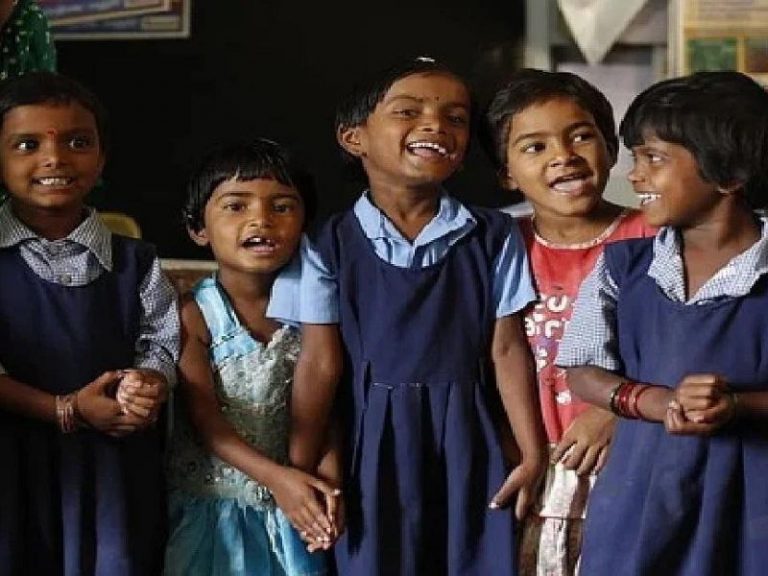Tamil Nadu: PGI demotion shock
-Shivani Chaturvedi (Chennai)

Tamil pride suffered a huge blow in the closing months of last year when the Union ministry of education’s Performance Grading Index (PGI) 2020-21, released on November 3, 2022, demoted the state’s primary-secondary school system to Level III.
According to the ministry’s department of school education and literacy website, PGI, introduced in 2017-18, “measures the performance of states/ UTs on a uniform scale to catalyse the (sic) transformational change in the field of school education”. However to “eliminate the phenomenon of one (state) improving only at the cost of others, thereby casting a stigma of under-performance on the latter,” the index clusters states/UTs (Union territories) into grades/levels I-X with states with best performing school systems grouped in Grade I and worst in Grade X.
In PGI 2020-21, no state or UT school system has been awarded Level I status. Seven states/UTs — Kerala, Andhra Pradesh, Punjab, Rajasthan, Gujarat, Maharashtra and Chandigarh — have been awarded Level II Status (scores 901-950). Tamil Nadu, which was routinely featured in Level II for the past three years, is relegated to Level III (score: 851-900).
The index assesses the schooling systems of states across 70 indicators (parameters) under two main heads: outcome, and governance and management. Under these main categories states’ school systems are evaluated for learning outcomes, access, infrastructure & facilities and governance processes.
In Tamil Nadu (pop. 76.4 million), a state which prides itself on its intellectual tradition and prowess, the demotion of its school system from Level II to Level III where it is grouped together with the Andaman & Nicobar Islands, Uttar Pradesh, Assam, Chhattisgarh and Jammu & Kashmir, has come as a shock.
Chennai-based educationist Dr. S. Somasundaram ascribes this demotion to children’s learning loss due to the closure of state schools for 82 weeks during the Covid-19 pandemic. “There was no classroom teaching for them for one-and-a-half years starting from March 2020. The great majority of children — especially in government schools — have been learning only from lessons telecast on Kalvi TV, the state-run education channel. Learning outcomes from such one-way lectures are bound to plunge to the lowest level,” says Somasundaram.
Failure of the state government to promote listening, speaking, reading and writing (LSRW) pedagogy in primary education is also a contributory factor. “Government schools are still focused on rote learning rather than developing creative thinking capabilities. Pratham’s Annual Status of Education Report (ASER) 2021 survey indicates that a large percentage of class VIII students can’t do basic maths taught in class III. If students have a good foundational education, they will do well in high school and higher education,” adds Somasundaram.
However, government spokespersons highlight that the state’s annual outlay for education has risen from Rs.29,000 crore in 2019-20 to Rs.37,000 crore in 2020-21 and blame government school leaders and teachers for Tamil Nadu’s demotion in PGI 2020-21.
K.P.O. Suresh, former president of the Tamil Nadu Postgraduate Teachers Association (TNPGTA), admits that the outlay for education has been increased, but according to him the government utilises a major chunk to provide “freebies” to students such as uniforms, books and free meals. “Instead, the government should focus on strengthening the infrastructure of government schools. Because of poor infrastructure, there’s a continuous exodus of children from government to private schools. Moreover, government school teachers are not consulted or involved in ensuring that age-appropriate labs, libraries etc are installed. All this has demotivated teachers. That’s why the fall in teaching-learning standards in Tamil Nadu,” says Suresh.
The shock of Tamil Nadu’s demotion in PGI 2021 is being expressed in all sections of society. On December 6, Justice S.M. Subramaniam of the Madras high court directed the state government to revisit the service rules related to appointment and promotion of school teachers to ensure good quality education while warning against appointment of teachers with distance education qualifications.
The silver lining to the dark PGI 2020-21 cloud that has depressed sentiment in the state is that the establishment has reacted strongly to the demotion of Tamil Nadu’s school system. That’s the first step towards reform.
Also Read: Tamil Nadu: 10 per cent quota for EWS will not be implemented

















Add comment